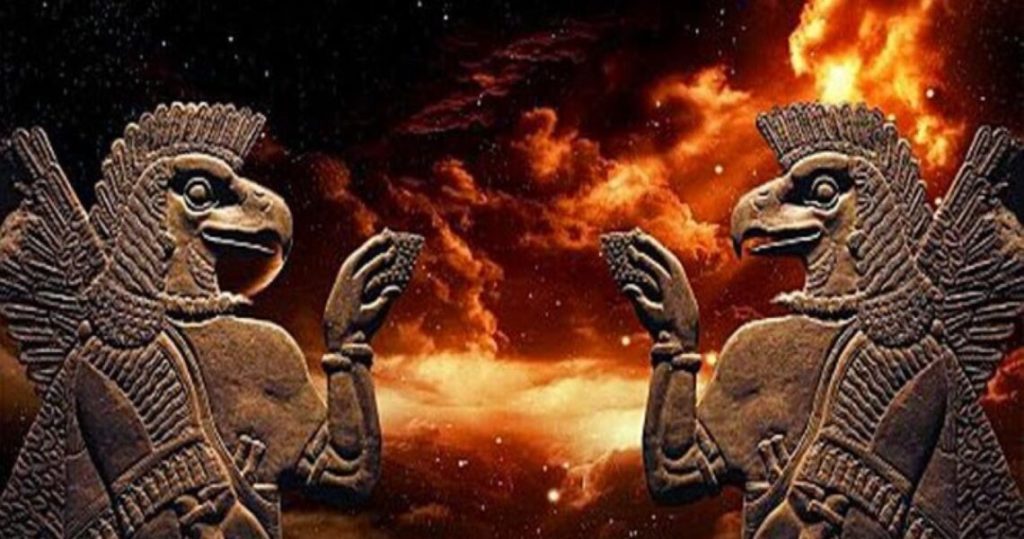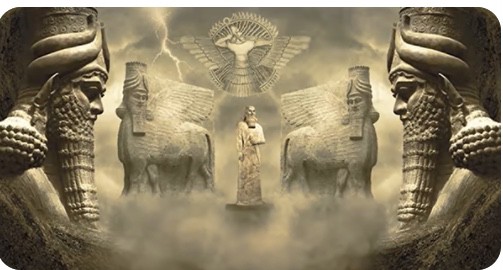The Anunnaki Conspiracy: The Secret Plan Of The Gods
Before the great pantheon of the ancient Greek and Egyptian gods, the old Mesopotamian gods were inhabitants of the Middle East. In some texts of these civilizations, the Anunnaki are mentioned.
The Anunnaki served as the chief gods of the ancient Sumerians and the Akkadians, Assyrians, and Babylonians. Still, the descriptions of how many they were and their role are often contradictory.

They were ancient Sumerian gods, the most powerful of the pantheon and descendants of the supreme deities: An and Ki, god of heaven and goddess of Earth, respectively. Their mission was to decree the destinies of all humanity.
Meanwhile, the myths of Babylonian creation account that there were 300 Anunnaki assigned to protect the sky and another 300 from watching the Underworld.
The Anunnaki and modern pseudohistory: Zecharia Sitchin
Fast forward to the 19th century, when archaeologists discovered dozens of ancient Babylonian clay tablets. The collections were so vast that research and translations on them continue today.
Zecharia Sitchin wrote a book that promulgated translations of 14 specific Enki-related tablets, “Planet 12”. He claims that the ancient Sumerians said that the Anunnaki came from Nibiru’s mythical planet.
Nibiru, according to Sitchin, has an elongated orbit of 3,600 years. When Nibiru was close to Earth at a distant time, the Anunnaki decided to approach the planet about 450,000 years ago, landing in Sumeria.
Why Did Anunnaki Came To Earth?
They needed gold to repair the atmosphere on their planet, but not being able to mine it for themselves, they created a race of beings called humans to do the work for them.
Sitchin’s book sold millions of copies, and together with his predecessors, the Swiss author Erich von Daniken and the Russian author Immanuel Velikovsky, they formed the triumvirate of pseudo-historians who believe that ancient texts are not mere mythological stories.
The three men expressed that the ancient Babylonian texts, among others, were scientific journals. Rather than viewing the Anunnaki as mythical gods from heaven, these three men believed that the Anunnaki were aliens.

Humans, therefore, were forced to serve extraterrestrial teachers who needed Earth’s mineral wealth to sustain their civilization.
Leading scholars and historians roundly reject the notions of Sitchin and his colleagues. Ancient Babylonian stories are just that: stories written by ancient peoples trying to explain their world in a way that made sense.
Modern science and collective human knowledge have since advanced to explain floods, astronomy, animals, and a host of other concepts that were once considered the works of supernatural gods.
There is no doubt that the ancient Babylonians were more advanced than was historically believed.
A clay tablet translated in 2015 shows that astronomers made exact mathematical calculations for Jupiter’s orbit a total of 1,400 years before the Europeans did.
The Babylonians would also have created trigonometry 1000 years earlier than the ancient Greeks. Does this mean that the ancient Sumerians had foreign visitors who taught them advanced science and mathematics?
Did ancient civilizations have access to high-powered computers or technological tools that allowed them to perform complex calculations?
No one knows what the ancient Sumerians thought when they wrote about the Anunnaki.
Historians denounce alien theorists, and they, in turn, believe that there is no way that ancient human civilizations could have known complex mathematics without the help of more advanced beings.
The lingering questions and mysteries about the Anunnaki may have nothing to do with aliens, but archaeologists must find more writings from that period to learn more.



